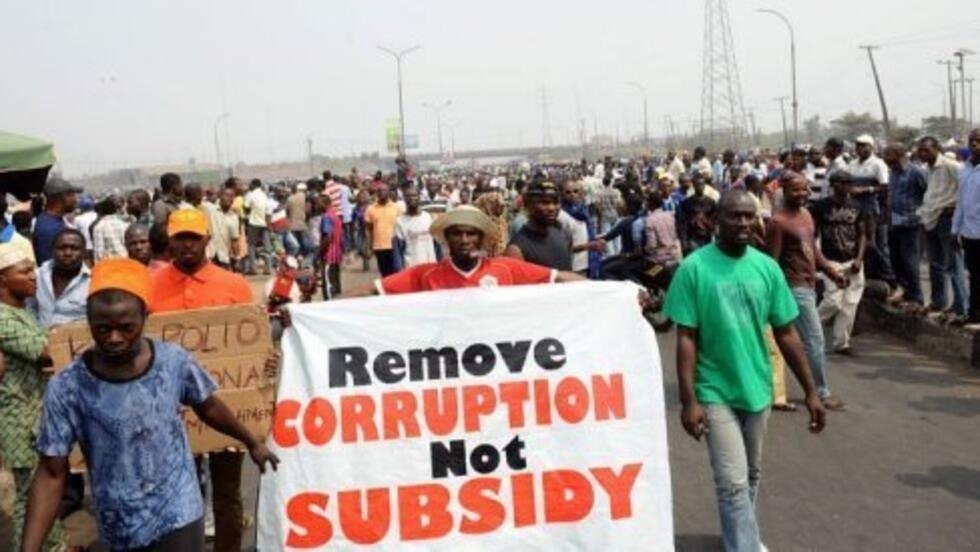
By Olakunle Agboola – Nigeria finds itself engulfed in a wave of protests, echoing the sentiments of frustration and discontent among its populace. The primary catalyst for these demonstrations is the relentless surge in the cost of living, which has placed an unbearable burden on the shoulders of ordinary Nigerians.
According to the National Bureau of Statistics (NBS), the food inflation rate in January 2024 quickened to 35.41 percent as the annual inflation rate rose to 29.90 percent in January from 28.92 percent in December 2023. This spiraling inflation, exacerbated by a myriad of economic challenges, has ignited a genuine call for change across the nation.
The harsh realities of inflation and economic instability reached a tipping point in 2024, as the cost of essential goods and services soared to unprecedented levels. Basic commodities such as food, fuel, and housing have become increasingly unaffordable for the average citizen, eroding purchasing power and plunging many into poverty. The exponential rise in prices has widened the gap between the affluent and the impoverished, exacerbating socio-economic inequality and breeding resentment among the masses.
Internal mismanagement and external pressures lie at the heart of Nigeria’s economic woes. The nation’s over-reliance on oil exports has left its economy vulnerable to fluctuations in global oil prices, exposing it to volatility and instability. Moreover, endemic corruption and ineffective governance have hindered efforts to diversify the economy and promote sustainable growth. The failure to implement structural reforms and address systemic issues has perpetuated a cycle of economic stagnation, leaving millions of Nigerians trapped in poverty.
One of the most pressing concerns fuelling the protests is rampant unemployment, particularly among the youth demographic. With a burgeoning population and limited job opportunities, millions of young Nigerians are left disillusioned and marginalized. The lack of viable employment prospects has fueled frustration and disillusionment, driving many to take to the streets in protest. Youth unemployment not only represents a significant economic challenge but also poses a threat to social stability and national security, as disenfranchised youths are susceptible to radicalization and criminality.
Tinubu’s administration has been marred by allegations of extravagant spending and wastefulness which is one of the reasons for protest. Government budgets have swelled to unsustainable levels, with a significant portion allocated to recurrent expenditures such as salaries, allowances, and overhead costs. Critics argue that this disproportionate allocation of resources undermines development initiatives and perpetuates a culture of inefficiency and profligacy. Moreover, the opacity surrounding government expenditure has fueled suspicions of corruption and cronyism, eroding public trust and confidence in the administration.
Central to the issue of excessive governance costs is the prevalence of political patronage and crony capitalism within Tinubu’s inner circle. Critics alleged that key government positions are often filled based on loyalty and allegiance rather than merit, resulting in the appointment of unqualified individuals who serve the ruling elite’s interests. This culture of patronage not only undermines the effectiveness of governance but also perpetuates a cycle of corruption and nepotism, further entrenching inequality and marginalization within society.
Limited resources that could be allocated to critical sectors such as healthcare, education, and infrastructure are diverted towards maintaining the lavish lifestyles of political elites. As a result, essential public services remain underfunded and inaccessible to many Nigerians, exacerbating poverty and social inequality. The failure to prioritize the populace’s needs perpetuates a cycle of underdevelopment and stifles economic growth, hindering Nigeria’s progress toward prosperity and stability.
The protest movement in Nigeria serves as a stark reminder of the urgent need for comprehensive economic reforms and political accountability. Failure to address the root causes of discontent risks further unrest and instability, undermining the country’s development prospects and social cohesion.
The Nigerian government has pledged to address the grievances of its citizens and implement measures to alleviate the economic hardship. However, skepticism runs deep among the populace, who view government promises with cynicism from years of broken commitments and unfulfilled pledges.








